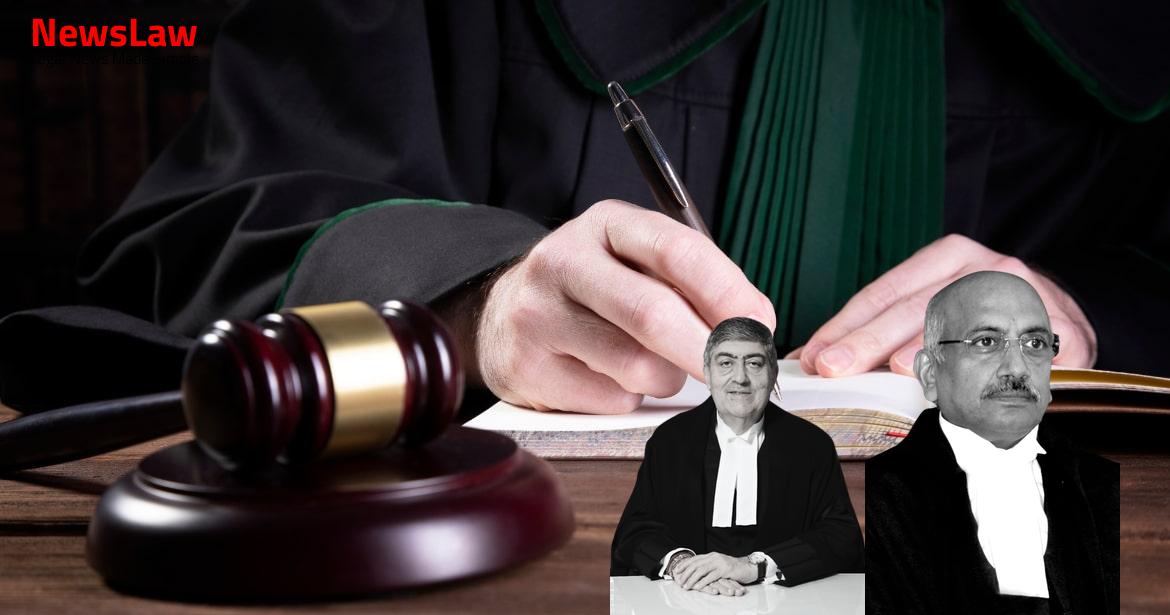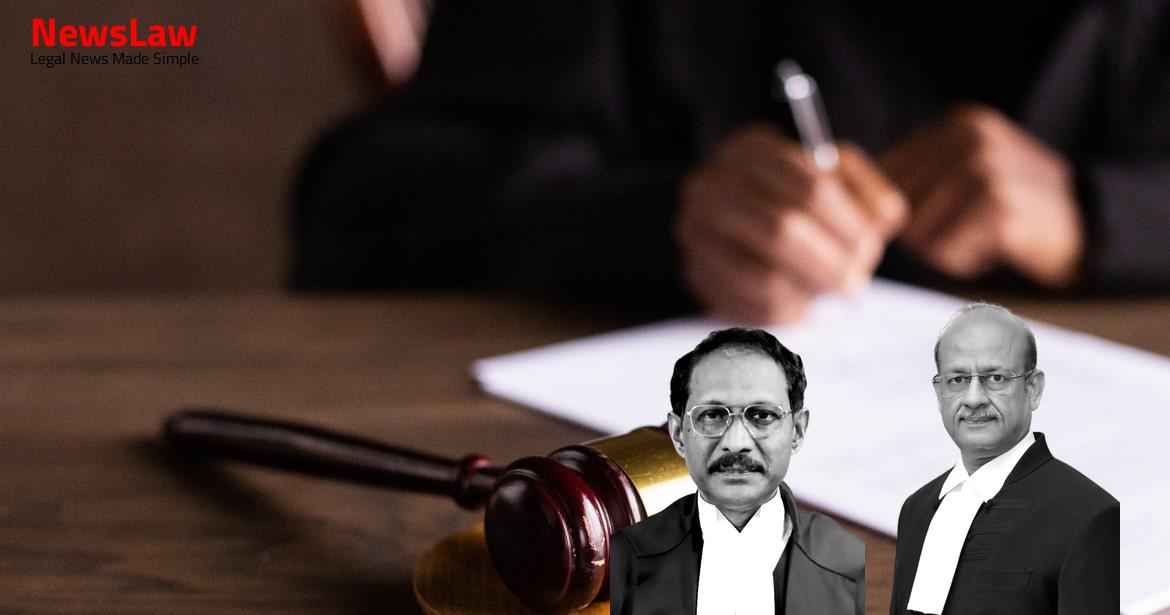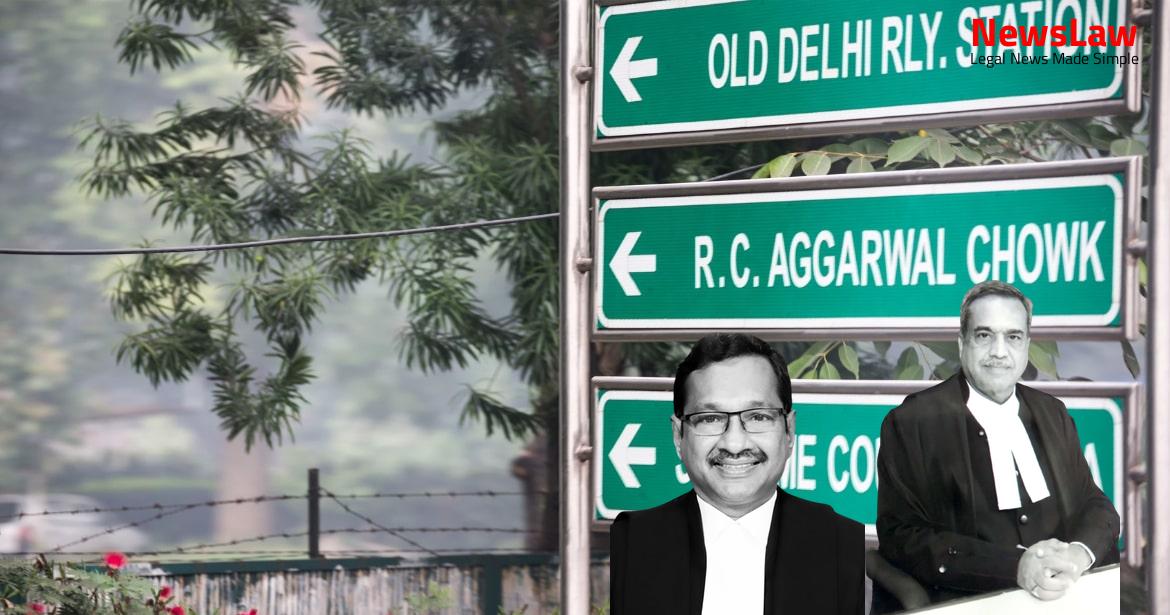The court’s in-depth legal analysis in a recent case sheds light on a land ownership dispute and the application of the principle of res judicata. The case delves into complex issues surrounding property rights and the impact of prior court decisions on current claims. Stay tuned to uncover the intricate legal reasoning behind determining land ownership in contentious scenarios.
Facts
- The applicants alleged that their father had purchased 2 acres 27 guntas of land in Survey No 299/2 from Shri Shaik Ahmed.
- The land in question was defense land and the appellants asserted they were not land grabbers.
- An order passed by the Special Court under the Andhra Pradesh Land Grabbing (Prohibition) Act, 1982 on 19.9.2008 was not interfered with by the High Court.
- The Tribunal was approached by legal heirs of Late Sri S.V. Srinivasulu Naidu to claim land allegedly grabbed by the Union of India.
- The father of the applicants had a dispute regarding a portion of the land which was taken over for road widening purposes.
- The Military Contract Committee began construction on the land sold by the father of the applicants.
- Lawsuits were filed by the purchasers against the Union of India and the State of Andhra Pradesh.
- An appeal was dismissed by the High Court in 1975 supporting the title of the plaintiffs as owners of the land.
- The applicants claimed to be the original owners of the land and asserted that the Government had no right or title over the property.
- The High Court affirmed the order of the Tribunal
- The order was based on the decree in OS No 175/1970
- The suit in question was only in respect of 4971.5 sq. yards in Survey No. 299/2
Also Read: Interpretation of Will and Hindu Succession Act: Legal Analysis
Issue
- The main issues to be decided in the present appeals are:
- 1. Whether the order passed in the first suit filed by the plaintiffs as affirmed by the High Court operates as res judicata?
- 2. Whether the appellants have proved their title over the land in question?
- 3. Whether the appellant is a land grabber within the meaning of Section 2(d) of the Act?
Also Read: Legal Analysis of Pujaris’ Rights in Temple Land Ownership
Arguments
- The subject matter of the first suit was only 4971.5 sq. yards purchased by the plaintiffs.
- The act of any person of land grabbing falls within the scope of the Act and the appellants are considered persons under Section 2(g) of the Act.
- There was an issue regarding the ownership of the land, with claims that it belonged to the Hyderabad State Army and was handed over to the Union in 1958, but the issue was decided against the appellants.
Also Read: Land Compensation Redetermination Case
Analysis
- In a judgment reported as State of Karnataka & Anr. v. All India Manufacturers Organisation & Ors., Explanations III & IV of Section 11 CPC were considered.
- In the case of Munni Bibi (since deceased) & Anr. v. Tirloki Nath & Ors., the principles of res judicata were discussed.
- Alka Gupta v. Narender Kumar Gupta emphasized that the plea of res judicata limits a plaintiff’s right to seek adjudication.
- Daryao & Ors. v. State of U.P. & Ors. reiterated the principle of finality regarding binding court decisions.
- The case of Mahboob Sahab v. Syed Ismail upheld the importance of res judicata for public policy reasons.
- In Govindammal (Dead) by LRs & Ors. v. Vaidiyanathan & Ors., the applicability of res judicata between co-defendants was explored.
- The three principles of res judicata between co-defendants were outlined, including a requirement of conflict of interest and finality of decision.
- The case of Ramadhar Shrivas v. Bhagwandas highlighted the concept of constructive res judicata under Section 11 CPC.
- The applicants in the case failed to raise a defense or counterclaim in the former suit, leading to the application of res judicata.
- The issue of whether res judicata could be raised by the applicants against their co-defendant in the first suit was also discussed.
- The appellants claimed title over the land in question and denied the claim of the plaintiffs in the first suit to the extent of that suit alone.
- The Mallapally area and Mallapalli Lines are distinct parcels of land, with different measurements and characteristics.
- The decree in the first suit is limited to the schedule property in that suit, which was 4971.5 sq. yards, and does not apply to the entire land.
- The appellants have been found to be in continuous possession of the suit property since 1940, as evidenced by various possession documents and a joint patta granted by the authorities.
- The findings of the first suit only pertain to the land it was concerned with, and do not cover the entire land currently in question.
- The transfer of land to the appellants is complete as evidenced by possession records, military land registers, and general land registers.
- The possession and ownership records maintained by the authorities carry a presumption of correctness.
- The judgment regarding the title of the appellants in the present matter is based on the continuous possession since 1958 and the transfer of possession by the Collector of Hyderabad.
- The communication and possession transfer of 19.3.1958 solidify the appellants’ ownership and possession claims over the land in question.
- The title of the appellants over the land in question has been affirmed, and the assertion of title by the Union of India is legitimate.
- The transfer of land by the State of Andhra Pradesh to the Union did not require registration by a registered instrument.
- Section 17(2)(vii) of the Registration Act, 1908 states that such transfers do not need to be registered.
- Section 2 of the Government Grants Act, 1895 exempts government grants from the Transfer of Property Act.
- The appellants are found to be the rightful owners of the land in question.
- The objection of the appellants regarding jurisdiction of the State Legislature over the property of the Union is not examined due to the ownership status.
- Civil Appeal No. 2049 of 2013 is allowed and the application before the Tribunal is dismissed.
- Civil Appeal No. 13 of 2012 is rendered infructuous and dismissed accordingly.
Decision
- The appellants have been accused of being land grabbers in the case.
- The Tribunal needs to determine if it has jurisdiction to entertain a petition under the Act regarding this issue.
Case Title: UNION OF INDIA Vs. S. NARASIMHULU NAIDU (DEAD THROUGH LRS.) (2021 INSC 425)
Case Number: C.A. No.-002049-002049 / 2013



